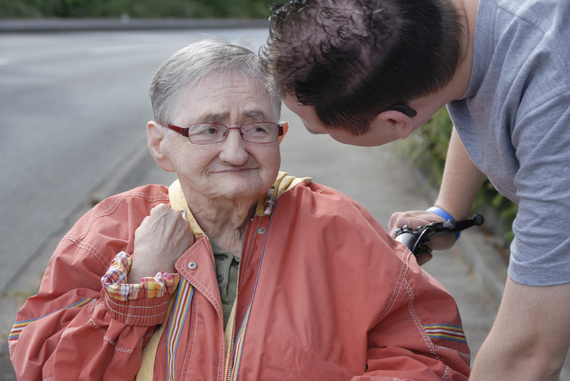By Valerie Bogart, Director, Evelyn Frank Legal Resources, New York Legal Assistance Group
Before the members of the U.S. Senate Appropriations Committee adjourned for the July 4th holiday they struck a blow to the independence and wellbeing of millions of seniors and people with disabilities by proposing to eliminate funding for a vital Medicare counseling program that helps people navigate an increasingly complex Medicare benefits system. Fortunately, last week the U.S. House Subcommittee on Labor, Health and Human Services, and Education approved a bill that would provide funding at the current level of $52.1 million.
For the last 24 years, Medicare State Health Insurance Assistance Programs (SHIPs) have operated in every state to provide information and one-on-one counseling that assists, educates and empowers Medicare-eligible seniors and people with disabilities. Counselors help beneficiaries, their families and caregivers understand - quite literally - the A, B, C, D (and more) of Medicare. Every year the federal government's 1-800-Medicare hotline refers over 250,000 callers to local SHIPs offices for help with complex cases. An average counseling session lasts almost an hour, due to the complexities of Medicare and the in-depth nature of SHIPs counseling.
Navigating Medicare is a daunting process. Today, Medicare beneficiaries must choose from among a dizzying array of prescription drug plans, Medicare Advantage plans, as well as various Medigap supplemental insurance policies--all with different premiums, cost sharing provisions, provider networks, and coverage rules.
For the clients NYLAG and other advocates for the poor serve, SHIPs are a particularly critical resource. Medicare is a great benefit, but it is expensive. Low-income people would never be able to afford Medicare without expert assistance to obtain the vital subsidies they need to reduce costs.
Along with other advocates, NYLAG collaborates with the New York State Office for the Aging to accept referrals of the most complicated cases and resolve thorny Medicare issues. We also operate as technical assistance support for the State's Health Insurance Information, Counseling and Assistance Program (HIICAP).
To give you a sense of the magnitude of the assistance provided, according to the Medicare Rights Center, in 2015 New York's HIICAP saved people with Medicare an estimated $30 million through enrollment in low-income assistance programs, including Medicare Savings Programs and the Part D Low-Income Subsidy.
NYLAG and our partners, the Community Service Society, Empire Justice Center, Medicare Rights Center, New York Statewide Senior Action Council, and the Legal Aid Society, host NY Health Access, a website that provides information and training for attorneys and other professionals. Click here to have your mind blown about the complexity of the Medicare Savings Programs. In New York State alone we have, in addition to the original Medicare plan, numerous supplemental Medigap insurance policies, 30 insurance companies that offer 128 different Medicare Advantage plan options, and 22 Part D prescription plans.
And remember, the website is a tool for Medicare wonks like me, people who are familiar with health and public benefits law. Imagine how intimidating, if not terrifying, it would be for someone who is poor, elderly and suffering from Parkinson's to wade through these arcane rules and attempt to select plan options that match her health needs and her ability to pay.
In 2015, SHIPs provided assistance to more than 7 million people including nearly 1.3 million people with incomes below 150 per cent of the Federal Poverty Level (less than $18,000 in annual income for a single household). And those numbers are going up significantly, with 10,000 Baby Boomers every day becoming eligible for Medicare benefits. That's 10,000 more people - daily - who are confused by the array of choices, don't understand the coverage offered, aren't sure whether it will include the drugs they need, and have no idea what their rights are. Volunteers play a vital role, providing about half of SHIPs counseling sessions. But this work can't be done by volunteers alone, and volunteers can't go it alone. It takes money to screen, train, and support these valuable partners.
In the months ahead, it is imperative that Congress adopt or improve on the House Subcommittee proposal to provide SHIPs funding at the current level. Rather than eliminating SHIPs, Congress should dramatically increase funding. The alternative is to leave millions who need support stranded--with nowhere to turn.
(For more information about how SHIPs can help you or a loved one, please contact the New York State Office for the Aging: call 1-800-701-0501 or go to their website. To find SHIPs in another state, call 1-877-839-2675 or go to www.shiptacenter.org.)

